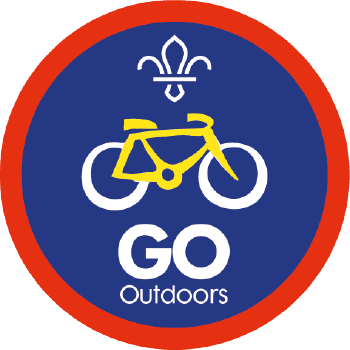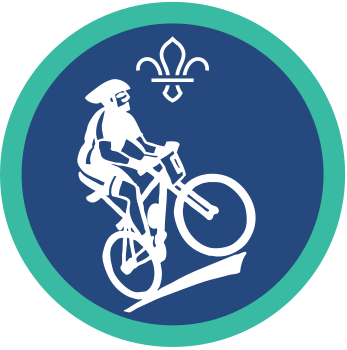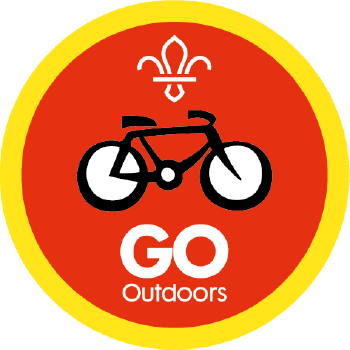Off-road cycling
What to expect
Off-road cycling or mountain biking describes the all-terrain cycling that’s existed since the dawn of cycling. Very few roads were paved in the 19th century, so most early cyclists travelled on dirt tracks or trails. As roads developed, many cyclists still wanted to explore more rugged paths. Clubs formed that were dedicated to the sport of mountain biking. As long as cycling has existed, there have been riders ready to modify their bikes to tackle the more adventurous trails.
Nowadays, a typical mountain bike will include front or full suspension, large knobbly tyres, straight handlebars and lower gear ratios for steep climbing. In the UK today, there are loads of off-road cycling opportunities. There’s graded man-made trails, bike parks, trail centres, bridleways through open countryside, canal towpaths, disused railway tracks and more.
Bike parks and trail centres are purpose-built and well-maintained, so are usually in a good state whatever the weather. Routes at these sites are clearly marked, easy to follow and graded by skill level. There are also facilities like toilets, cafes and bike washes, so that you have everything you need in one place.
What you’ll learn
Different trails will help you build endurance, work on your core strength and balance and you’ll gain a new appreciation for some of the beautiful scenery along the way!
Fun facts
Despite the sport existing in one form or another for over 100 years, the first official Mountain Bike World Championship didn’t take place until 1990 and it wasn’t until 1996 that mountain biking became an Olympic sport.
Handy hints
- Look out for walking routes nearby. Don’t forget that if your bike breaks, you’ll have to walk your bike safely back to where you came from.
- Leave the Lycra at home. Experienced road cyclists probably have some tight-fitting clothes in your wardrobe. But when you’re dealing with this kind of terrain, with prickly branches and mudslides, you’ll need more protection. Note that most trail riders opt for baggy shorts and loose-fitting tops.
- You can hire everything you need. If you’re not sure if off-roading is for you don’t invest in all the gear straight away! Most bike parks will have rental facilities available where you can hire bikes as well as all the protective equipment necessary. Get in touch well in advance of your trip to see if they offer deals for group bookings.
- Be prepared for anything. If you’re not at an activity centre and you’re going out into the wild for a while, be sure to bring along a little rucksack with water, snacks, a first aid kit and anything you might need for repairs. Make sure you’re prepared for the weather too. That means layers, sun cream, waterproofs and whatever else you might need in the current conditions.
Safety
You must always:
- Complete a risk assessment
- Have the right ratios of number of adults to provide suitable supervision
- Set up an InTouch process
- Know what to do in an emergency
- Share information with parents and carers with an activity information form
- Get approval from your commissioner
Be safe outdoors:
- Check the weather forecast
Cycling:
- Everyone must wear a helmet whilst cycling, exemptions apply.
Joint activities with other organisations:
- This activity can be run jointly with Girlguiding.
- This activity can be run with other organisations.
This activity can be led by you or someone else in Scouts:
The activity leader must have an adventurous activities permit with the right level and permissions for your group.
You don't need a permit for activities in Environment Zero.
Where the group is entirely members over the age of 18 the permit scheme does not apply, please follow the rule 9.8 adult groups.
You can go to a centre or use an activity leader who is not part of Scouting:
You must find a suitable provider who meets the following requirements:- The centre/instructor should hold one of these: (If the provider is AALA exempt)
- Mountain Biking - Qualified to lead the activity as per the requirements of British Cycling
- Mountain Biking - Qualified to lead the activity as per the requirements of Cycling UK
- Mountain Biking - Qualified to lead the activity as per the requirements of MIAS
- Mountain Biking - Qualified to lead the activity as per the requirements of Scottish Cycling
- Mountain Biking - Qualified to lead the activity as per the requirements of CTC
The provider must have public liability insurance.
Guidance
Reflection
Mountain biking is a great way for cyclists to stay active, develop their skills further and enjoy new and exciting environments. Of course, valuing the time we spend outdoors goes beyond appreciating the beauty around us. It’s our responsibility as riders to prepare ourselves for the risks that come with changing terrain.
In your off-road adventure, everyone needed to keep looking around for potential hazards and adapt to the conditions. This ability to be alert and respond quickly to changing situations is something that comes up a lot in other places, like when you’re running a business or having a job interview. Can your group think of other examples of times when keeping a cool head and having quick reactions can be particularly useful?
- Off-road cycling can often be adapted so that more people can give it a go. Many outdoor centres have facilities that cater for people with additional needs and experienced instructors to help everyone achieve their goals. Get in touch with your local provider to chat through the needs of people in your group – make sure you give them plenty of notice.
- Get in touch with your provider in advance to ask about ‘adaptive mountain biking’. This is where equipment is adapted or modified, or facilities are provided that enable riders with additional needs to get out onto the trails and enjoy an authentic off-road experience.
All Scout activities should be inclusive and accessible.
If everyone has enjoyed their mountain biking adventure, then why not try switching it up. See what opportunities are out there for off-road BMXing in your area.




